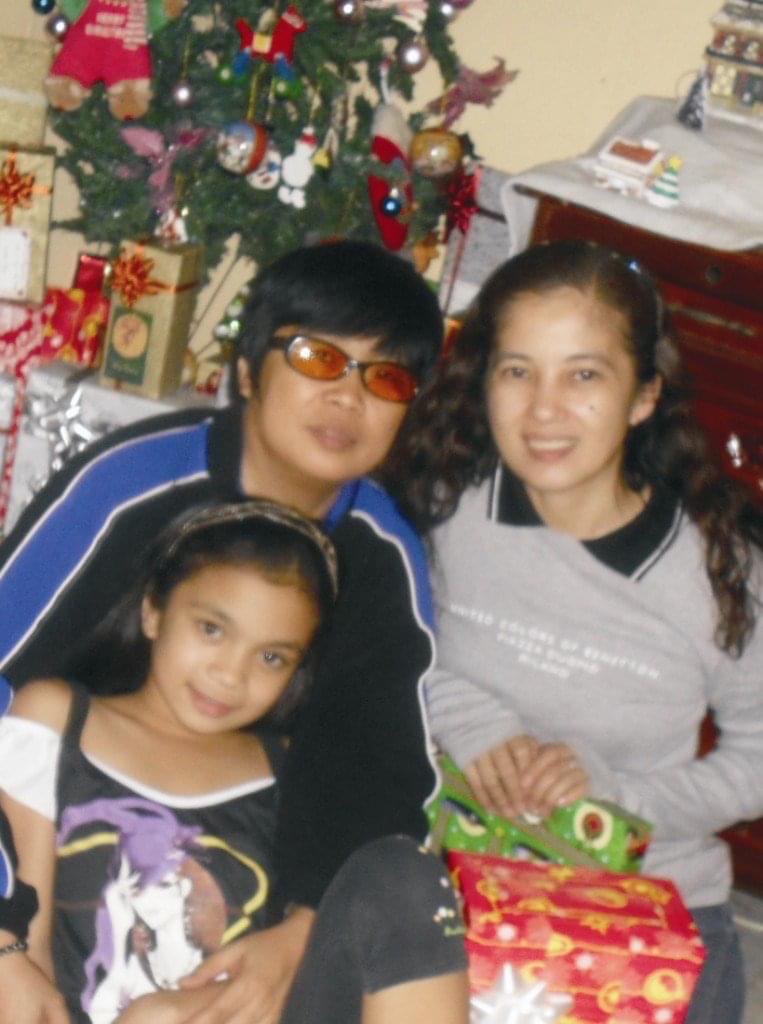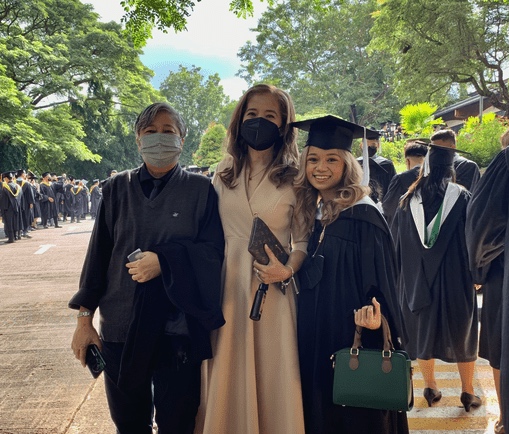Growing up with two moms: I am who I am because of the choices they made, the power they shared
I am a child of two women. At first glance, my moms may look like a textbook same-sex couple, with my mom having feminine and my mama having masculine appearances and mannerisms. We would often get asked, "So, is your mama the father figure?" The simple answer is: We do not have a father figure in the family. They are mothers, women, and they’re great at it.
My late biological mother decided what was best for me at three months old and introduced me to my moms due to certain circumstances. It's not difficult to recognize the power and strength it took—she was smart, strong, beautiful, and most importantly, she loved me greatly.
I grew up watching my moms share responsibilities. From cooking meals to fixing appliances to taking care of me and earning for the family, I understood that these roles could be done regardless of gender.

Our daily interactions are nothing short of normal, yet I vividly remember moments when I felt we had to tone down our proud family as if it were yesterday. I notice the shift in people’s faces when they raise their eyebrows, their subtle looks of superiority when they find out I was raised in a household without a man in the picture because “a family should always be between a man, a woman, and their child.”
I look back at myself as a child, lined up at the school gymnasium full of kids with both parents at their side, waiting to be called on stage during recognition day. With only one of my moms beside me, I would ask where my other mom is. They would give me a different reason every year: “She’s saving us seats,” “She’s dizzy,” and later, after my unrelenting questions, they would explain how the other decided to sit this one out because they didn’t want me to suffer the implications of having same-sex parents in a Catholic school. It was not until my senior high school graduation that they finally mustered the courage to walk on stage together.

In college, I remember how I took my parents' side after my religion professor said someone who grew up with same-sex parents would face an "identity crisis." I told him that as someone who’s been raised by two moms, it’s normal for children to question it and it isn’t difficult to understand the concept of two moms/dads—what makes it difficult is being surrounded by people who shove heteronormativity down our throats.
I was crying at that time in front of everyone in my class because it resurfaced so many memories of having to hear that your family is “sinful” and “unacceptable,” especially from teachers—adults! It was painful to process how society perceives your family that way when you go home to a space full of nothing but love and functions no different from a traditional family. My mama would always explain it to me by saying, “They’re not used to families like ours, they don’t understand what it’s like, and people don’t like things they don’t understand.”
Navigating the world as a woman is never an easy feat, and I understand the multiple burden my moms carry as those that identify themselves as LBTQIA+. Knowing only a portion of their experiences, I carry the discrimination they faced in my pocket as if it were videos on my phone I could pull out and show anyone any time I’m prompted with the questions: “What were the challenges you faced as a child of two women? Was it ever confusing for you, especially not having a male authority or father figure in your family?”

I know the confusion and challenges I faced stemmed not from my moms’ gender identity—it’s not about who they chose to love either. It was because of the people who do not accept or even try to understand that there is more to a person and to life than the harmful traditional notions and stereotypes on who we can be, dictated by what’s between our legs. At the end of the day, my moms fight back with their capacity to reject the thought that women cannot be other than a man’s partner and that women alone cannot raise a family.
Regardless of my moms’ gender identity, I am proud of them, and everything they are beyond that. They are women who are loud, who make their capabilities known in every space, who work hard to provide for their family, who say the wrong things sometimes, who sometimes can’t take their own advice, who sent me to good schools that were out of our budget, who have very distinct personalities that make or break our weekends, and who love me just as any parent who loves their child does.
I know that I am here, an advocate of women and girls’ rights, working at a feminist legal non-government organization, supporting women and girls towards recognizing their own experiences, because of the choices my moms made, and the power they shared so that I could go for my own choices and my own identity.
Ours is not just a story of courage, it's also a story of recognizing our own identities, our experiences, our choices as equally important in a society that fails to value it—that aside from being mothers, we are women capable of working outside our home, to have our decisions recognized, to be our own.


